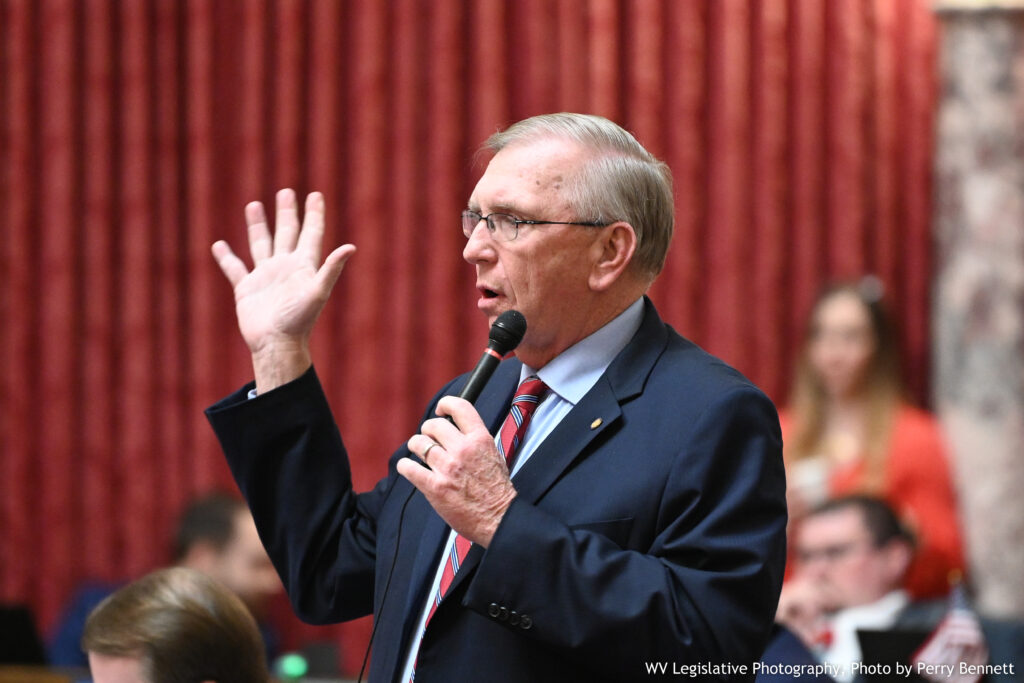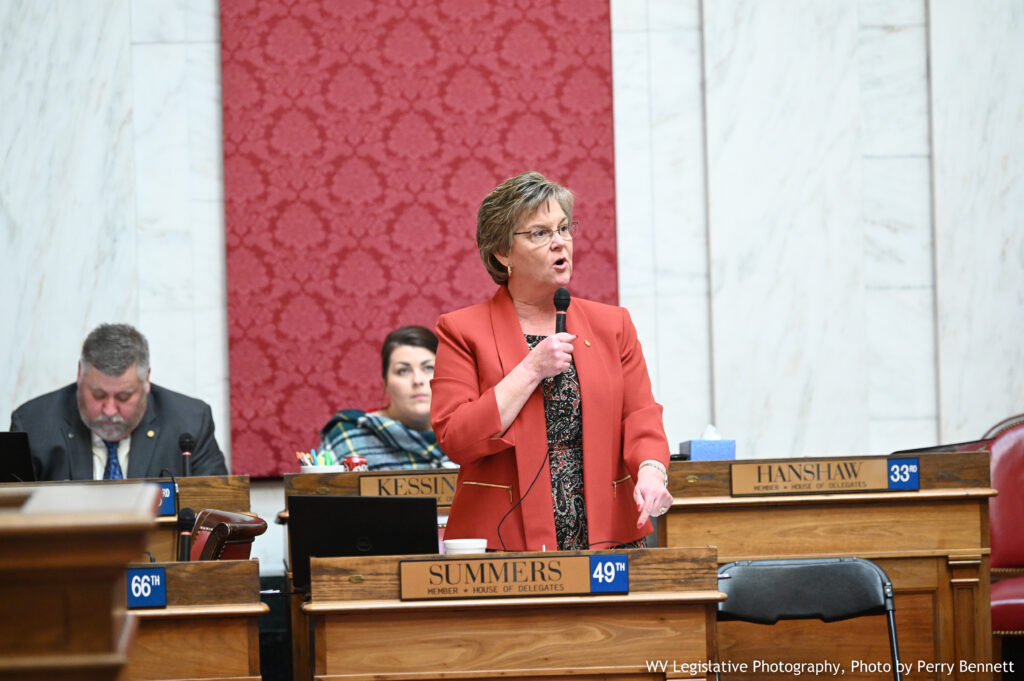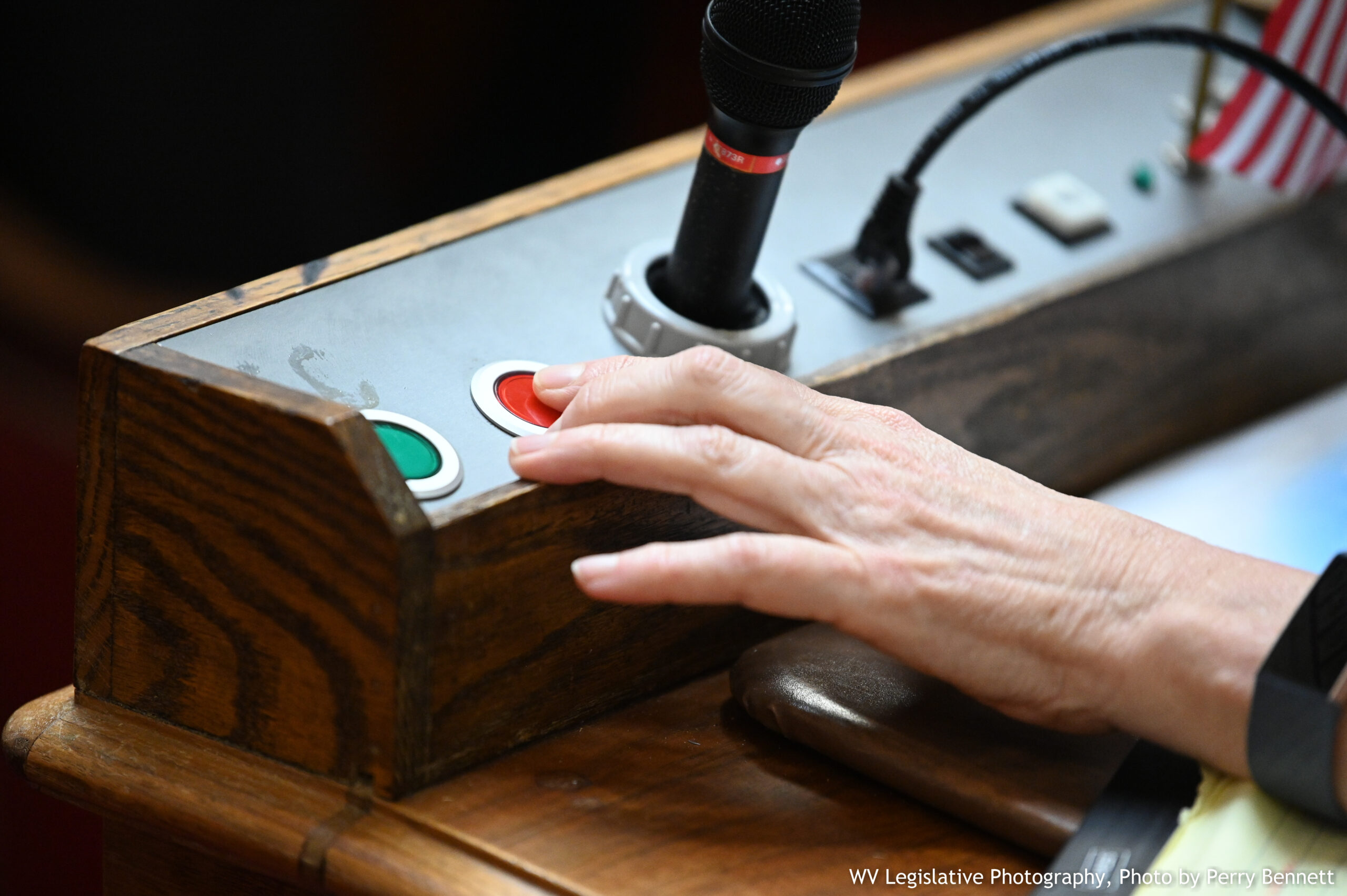CHARLESTON – Friday is Day 59 of the 60-day legislative session. The House of Delegates has 37 bills up for third reading and passage – including the Senate intermediate appeals court bill (see separate story on that) – along with five bills on second reading.
Here are some highlights. The Senate also slogged through a long day and we have a couple highlights from its action, too.
SB 597 provides raises for magistrates and judges spread across three years.
On July 1, family court judges will get a 10% raise. The total cost will be $441,150 for the additional expense. On July 1, 2021, Supreme Court Justices, circuit judges and magistrates will get a 5% raise (total additional cost $960,750), followed by another 5% raise on July 1, 2022 (another $960,750).
The last judicial pay raise was in 2011.

Delegate Tom Azinger, R-Wood, said many judges serve as a financial sacrifice. One judge told Azinger he paid more in income taxes than he earned on the bench. “If we’re going to attract top-notch people … we’re going to have to pay them some more money.”
Delegate Pat McGeehan, R-Hancock, said the Legislature keeps cooking up new spending without any corresponding cuts. “We’re going to be in the red pretty soon and no one really has a plan to make sure that doesn’t happen.” And the Legislature declined to pass any tax relief for working folks this session.
It passed 91-9 It passed 91-9 and goes back to the Senate for amendment concurrence. Eight Republicans and one Independent voted against it. All local delegates voted for it.

SB 120 sets priorities for plugging abandoned oil and gas wells. When a bond posted for a well is forfeited, the proceeds must be used on the land where the well is located if the bond was forfeited for failure to plug the well or repair the well, or several other specified reasons.
Under current law, when a bond is forfeited, the money goes to the Department of Environmental Protection’s well capping fund. DEP has a priority list of wells to be capped and draws from the pool of money to address wells in order.
The House passed it 100-0 and sent it back to the Senate for amendment concurrence.
HB 4524 makes the whole state “wet” – meaning permitting the sale of alcohol in stores for off-premises consumption – by July 1. It originated from a request by Snowshoe Resort, which is located in a dry community. Customers are frustrated because they can’t buy wine from local stores.

Dry localities can choose to remain dry by two methods. One, the local government can issue an order, no later than July 1, for a referendum in November. Two, 5% of the voters can petition for a referendum. Under this method, an election can’t election can’t be more held than every two years.
The Senate passed it 27-6 Thursday and returned to the House for amendment concurrence. The House refused to concur and the bill will go to conference committee.
HB 4094 spells out the duties of the new Foster Care Ombudsman office, including its power to investigate complaints from foster children and families, to issue subpoenas and access relevant records. The Senate passed 33-0 on Thursday and returned to the House for amendment concurrence. The House concurred, re-passed it and sent it to the governor.
Senate action
HB 4494 creates the Tobacco Use Cessation Initiative. As it came from the House, where it passed 90-10, the program would draw its funding from 25% of a prior year’s interest earnings from Rainy Day B, the Tobacco Settlement Medical Trust Fund, which was created with money from the state’s $900,000 settlement in its Big Tobacco suit.
The bill creates a Tobacco Use Prevention and Cessation Task Force under the Bureau for Public Health’s Division of Tobacco Prevention to recommend and monitor programs to be administered by the division.
Senate Finance took out the funding mechanism to make the bill revenue neutral and kept the task force.
The Senate passed that version 33-1 and sent it to the House for amendment concurrence.
HB 4560 enables shops that sell wine to deliver gifts baskets containing wine without the purchaser coming into the store. The purchaser may order the gift basket by phone or email or website.
Delegate Evan Hansen, D-Monongalia is lead sponsor and previously explained that legislation passed last year allowed deliveries of gift baskets containing wine but required a face-to-face purchase. A Morgantown shop told him this puts them at a competitive disadvantage with out-of-stat retailers that can accept online purchases and deliver them in West Virginia.
The Senate amended it to include a legal-age verification provision and passed it 33-1. It went back to the House for amendment concurrence.
TWITTER @dbeardtdp Email David Beard at dbeard@dominionpost.com




